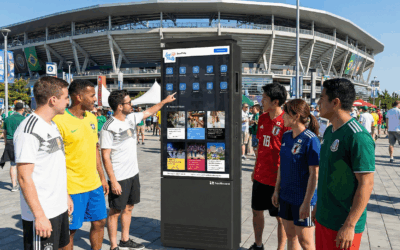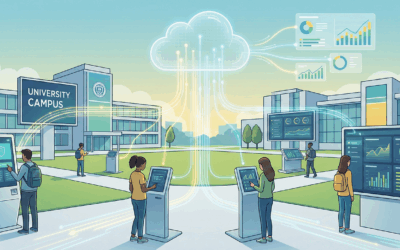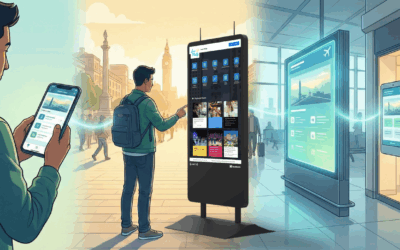Airbnb Didn’t Just Disrupt It Redefined Hospitality
The traditional hotel playbook was written around consistency, brand loyalty, and physical assets: spacious lobbies, well-designed rooms, and global footprints. And then, quietly but radically, Airbnb came along and changed the rules not by beating hotels on amenities or price, but by focusing on human connection.
While hotels optimized efficiency, Airbnb optimized emotional warmth. A host’s handwritten note often meant more to guests than a 24-hour front desk.
By 2024, Airbnb had over 7.7 million active listings globally, more than Marriott, Hilton, Hyatt, and IHG combined. But this isn’t about market size. It’s about a shift in guest expectations.
Guests want to feel cared for. Airbnb figured that out. Many hotels still haven’t.
What Airbnb Hosts Get Right and Why It’s Working
They Start Building Relationships Before the Guest Arrives
The interaction doesn’t begin at the front door. It starts the moment a booking is confirmed. Most Airbnb hosts will reach out to their guests ahead of time with a warm message:
- “Can’t wait to host you! Any arrival preferences?”
- “Let me know if you need restaurant tips!”
- “Flying in late? I’ll leave the lights on and snacks in the fridge.”
In contrast, hotel emails tend to sound more like airline check-in notices.
83% of Airbnb guests receive a personal message before arrival, compared to 27% of hotel guests.
(Source: Skift Guest Experience Study, 2023)

They Offer Hyper-Local, Authentic Tips
Airbnb hosts regularly share curated experiences—local parks, indie cafes, farmers’ markets, rooftop art shows. These suggestions are rooted in their personal love for the neighborhood.
Hotels, on the other hand, often stick to printed maps and brochure racks in the lobby. There’s little dynamic interaction. Few updates. No personalization.
64% of travelers say they explored more off-the-beaten-path places while staying at an Airbnb than during a hotel stay.
(Source: Expedia Travel Trends, 2022)

They Win Loyalty Without Points or Tiers
While hotels spend heavily on loyalty programs, Airbnb guests often return because of the personal rapport they built with the host.
One guest remembers the handmade breakfast. Another remembers the story the host shared over coffee. These are memory touchpoints—the kind that no hotel app has yet replicated.
“I can’t remember the name of the hotel I stayed at in Bangkok, but I’ll never forget my Airbnb host who gave me a tuk-tuk tour at sunset.”
— TripAdvisor user review
They Proactively Capture Feedback in Real Time
Many hosts casually check in during the stay: “How’s everything going? Need anything?”
This casual mid-stay nudge prevents dissatisfaction from festering.
Hotels? Most feedback comes via post-checkout emails that few guests open, let alone answer.
49% of hotel guests report encountering issues during their stay that were never addressed. Airbnb guests report this at a rate of just 18%.
(Source: TrustYou Global Feedback Study, 2023)
What’s Holding Hotels Back? Scale Without Soul
Let’s be clear hotels are not lazy. They’re busy. Between check-ins, vendor coordination, OTAs, and internal systems, it’s easy for the guest experience to become procedural.
What most hotels don’t lack is data. They lack activation.
They know your age, your travel type, your check-in time, and your booking source. But the guest experience still feels one-size-fits-all.
Because personalization without scalable infrastructure isn’t sustainable.
Enter HootBoard: Infrastructure for Emotional Engagement at Scale
At HootBoard, we’re building interactive kiosks that help hotels do what Airbnb hosts do—but faster, smarter, and at scale.
Though we haven’t deployed in hotels yet, our platform is already in use across DMOs (Destination Marketing Organizations) and public-facing venues where visitor engagement and content discovery are paramount. The results are clear: people engage more when the technology is personalized and helpful.
So what could kiosks look like in your hotel lobby?
Personalized Guest Onboarding in Seconds
Instead of a clipboard or an impersonal “How was your journey?”, guests tap into a screen that asks:
- What are your interests—nature, nightlife, food, art?
- Are you here for business or leisure?
- Want insider tips on local favorites?
Based on these responses, the kiosk creates a lightweight guest interest profile that shapes content recommendations during their stay.
Studies show hotels using personalized pre-stay data see an average 18–22% improvement in NPS scores.
(Source: Cornell Hospitality Reports, 2023)

Local Discovery Made Personal
Once the profile is created, guests see:
- Curated lists of restaurants, hidden attractions, and events based on interests
- Offers and upsells tailored to guest type (e.g., spa deals for couples, tours for solo travelers)
- Real-time updates from local partners (e.g., “Sunset kayaking available at 6:00 PM!”)
This kind of contextual discovery has long been missing in hotels.
In DMOs using HootBoard, interactive discovery screens see 3x more engagement than traditional signage.

Emotion at Scale: Greetings, Celebrations, and Memories
Imagine:
- A kiosk saying “Welcome back, Arjun! We saved your breakfast preferences from last time.”
- A birthday message displayed automatically on the guest’s check-in day
- A simple thank-you message after checkout
Hotels can use HootBoard to trigger these messages dynamically using minimal data inputs.
Personalized experiences increase guest retention by 23% over standardized ones.
(Source: Forrester CX Hospitality Benchmark, 2023)
Real-Time Feedback Handled Before the Review
Guests can log:
- Maintenance issues
- Suggestions
- Service feedback
This data routes instantly to staff dashboards allowing hotels to fix problems before they become TripAdvisor reviews.

Operational Relief with Zero Friction
When 40% of front desk questions are about Wi-Fi, directions, or restaurant recs, kiosks become a force multiplier.
They don’t replace your staff. They free them up to be more attentive, human, and proactive.
What This Means for Hotels: A Revenue and Retention Opportunity
Here’s what this could unlock for your hotel:
| KPI | With Kiosk Support |
| In-stay upsells | +15–25% |
| Guest satisfaction (NPS) | +20% |
| Front desk workload | −30% |
| Repeat bookings | +18% |
| OTA dependency | Lower via direct retention |

Why Start Now: First Movers Will Win
Hospitality is at an inflection point. AI and automation are changing how services are delivered—but guest expectations are going in the opposite direction.
They don’t want fewer interactions.
They want more human ones delivered seamlessly.
Airbnb proved it can be done without scale.
Hotels can prove it can be done with scale if the right tools are used.
HootBoard is ready to pilot this next wave of digital hospitality.
Final Word: Hosting Is a Skill. Technology Can Help You Master It.
Airbnb hosts have taught the world that hospitality is about knowing people, not just serving them.
Your hotel already has the rooms, the team, the brand.
Now all it needs is the interface to build relationships.
With HootBoard kiosks, the hotel lobby becomes a digital concierge, a guest profiler, a local expert and, most importantly, a host.




